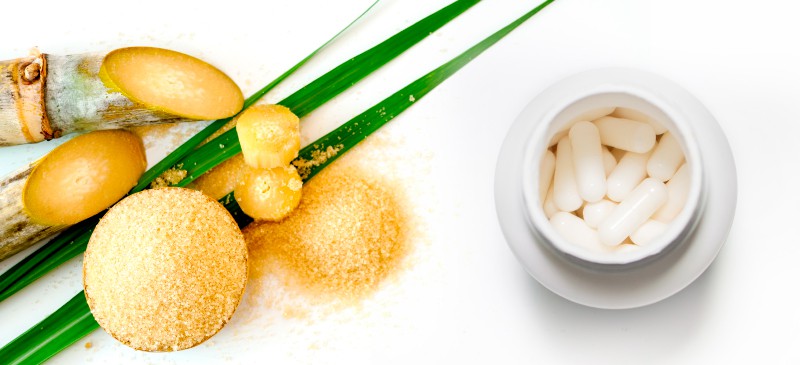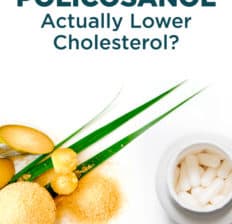This Dr. Axe content is medically reviewed or fact checked to ensure factually accurate information.
With strict editorial sourcing guidelines, we only link to academic research institutions, reputable media sites and, when research is available, medically peer-reviewed studies. Note that the numbers in parentheses (1, 2, etc.) are clickable links to these studies.
The information in our articles is NOT intended to replace a one-on-one relationship with a qualified health care professional and is not intended as medical advice.
This article is based on scientific evidence, written by experts and fact checked by our trained editorial staff. Note that the numbers in parentheses (1, 2, etc.) are clickable links to medically peer-reviewed studies.
Our team includes licensed nutritionists and dietitians, certified health education specialists, as well as certified strength and conditioning specialists, personal trainers and corrective exercise specialists. Our team aims to be not only thorough with its research, but also objective and unbiased.
The information in our articles is NOT intended to replace a one-on-one relationship with a qualified health care professional and is not intended as medical advice.
Policosanol: Can It Really Balance Cholesterol & Blood Pressure?
July 16, 2021

When it comes to naturally lowering cholesterol, nothing works quite as well as eating a healthy diet and exercising. However some supplements may also be helpful, including the type called policosanol.
What is policosanol good for? While there’s some controversy surrounding how well it works, it may be able to support healthy blood pressure and cholesterol levels, while also reducing the risk for some types of heart disease.
One study published in the journal Food Science and Biotechnology referred to policosanol as “a well-defined nutraceutical for the management of blood cholesterol levels.” However, another review didn’t find evidence demonstrating that this is true.
What Is Policosanol?
Policosanol is a compound that is extracted from the waxes of the sugar cane and wheat plants. While these are not exactly cholesterol-lowering foods, they contain chemicals that be isolated and taken to affect blood flow and blood clotting.
Technically, policosanol is mostly a form of isolated alcohol. It’s also sometimes called octacosanol, 1-octacosanol, N-octacosanol and octacosyl alcohol.
It contains about 60 percent octacosanol, which is a fatty alcohol that is present in the epicuticular waxes of some plants. It also contains smaller amounts of other alcohols, including triacontanol, hexacosanol and dotriacontanol.
Benefits
Does policosanol really work? When it comes to how effective it is, especially in regard to lowering high cholesterol, study results have been mixed overall. Some studies and reviews have found that it can support cardiovascular functions, while others have not found this to be the case.
Below are some of the common uses for this supplement and what we know from the available research about how it works.
1. May Help Lower Cholesterol (Although It’s Still Up for Debate)
The most common use for policosanol is reducing dyslipidemia (high cholesterol). One 2001 study conducted in Cuba found that it can help to normalize total cholesterol and LDL (“bad”) cholesterol levels.
Another 2002 also done in Cuba found that doses of 20 mg/day and 40 mg/day had similar effects on blood lipid profiles. It’s likely that these benefits would be especially true when supplementation is combined with healthy lifestyle changes, like making improvements to your diet and physical activity level.
Similarly, a 2017 meta-analysis of randomized, controlled trials that was published in Molecular Nutrition and Food Research concluded that “pooled results support the lipid-lowering effects and safety of policosanol … more clinical trials are needed to further confirm the efficacy of policosanol on dyslipidemia.”
It’s thought that policosanol works by decreasing cholesterol production in the liver, and it may also increase how much LDL is broken down. Additionally it can help support functions of “good” HDL cholesterol.
Some emerging research suggests that supplementing with a combination of policosanol and aspirin on an ongoing basis may decrease the risk for developing heart disease in people with a history of clogged arteries.
On the other hand, not every expert believes that this supplement works for heart health. A 2006 study published in the respected journal JAMA found that it did not offer benefits for heart health.
As the study states, “Policosanol treatment resulted in no relevant changes in weight, vital signs (blood pressure, pulse rate), or routine chemistry and hematological laboratory parameters (data not shown).”
According to an article published by Harvard Medical School:
A dietary supplement made from sugar cane doesn’t lower cholesterol as advertised. One problem with the claims is that the lion’s share of the evidence comes from a single commercial lab in Cuba that markets the supplement….An independent study done in Germany tested policosanol in men and women with high cholesterol. After 12 weeks, LDL levels were no better in any of the policosanol groups than in the placebo group. The supplements also had no effect on related factors, either, including HDL (good) cholesterol, triglycerides, and lipoprotein(a).
2. May Improve Blood Pressure and Circulation/Blood Flow
Supplementing with policosanol might help lower blood pressure in people who are beginning to show signs of hypertension/high blood pressure.
Because it can boost blood flow, policosanol may decrease intermittent claudication symptoms (leg pain during exercise that results from bad circulation). This can allow people with leg pain to exercise for longer or walk a further distance before they need to stop due to discomfort.
Another potential cardiovascular benefit is reducing blood clotting and the “stickiness” of platelets in the blood. It may help prevent high platelet reactivity after someone has received a stent implantation, although more research is needed to confirm this.
3. May Support Healthy Blood Sugar Levels
In addition to lowering total and LDL cholesterol, blood pressure, and triglyceride levels, one study conducted on rats found that policosanol supplementation helped reduce blood glucose levels. This may protect against metabolic syndrome and diabetes.
Sources
What foods contain policosanol? Policosanol is found in the waxes of certain plants, especially sugar cane and wheat germ, in addition to beeswax.
The top source is sugar cane, followed by wheat. This is why Cuba (where sugar cane is widely grown) is a major producer of this supplement.
Because you can’t obtain enough from eating sugar and wheat, it’s taken as a supplement, including in pill and powder forms.
Supplements/Dosage
You may wonder: How much policosanol should I take to lower cholesterol?
A typical dosage is between 10 to 20 milligrams taken once daily. Sometimes lower or higher amounts may be taken, anywhere from 5 to 80 milligrams per day depending on the condition it’s being used to treat.
As mentioned above, one study from Cuba found that 40 mg/day did not offer additional benefits beyond 20 mg/day.
For additional support, sometimes policosanol is combined with other supplements, including berberine and red yeast rice. You may find this combination in some supplements purported to support general cardiovascular functions.
Risks and Side Effects
Overall, it seems safe to take policosanol in recommended doses for a relatively short period of time, such as one to three years. It’s not known how long-term use may affect the heart and arteries.
Because it affects cholesterol and circulation, it may interact with some medications. People taking blood thinners, insulin or cholesterol or blood pressure mediations should talk to their doctors before starting to supplement with policosanol (or other supplements).
Some examples of drugs it may interact with include:
- aspirin
- clopidogrel (Plavix)
- diclofenac (Voltaren, Cataflam, others)
- ibuprofen (Advil, Motrin)
- others
While it’s generally safe to take, some side effects may be possible. These can potentially include:
- headaches
- difficulty sleeping
- dizziness
- upset stomach
- skin redness
- weight loss
Anyone undergoing surgery should not use policosanol at least two weeks before a scheduled surgery. This is due to the fact that it affects blood clotting and blood sugar levels.
It might potentially increase bleeding and the risk for fainting, so avoid it if you have any known issues with blood sugar management.
Conclusion
- Policosanol is a compound extracted from sugar cane and wheat that is most commonly taken in supplement form to lower high cholesterol levels.
- Other potential benefits include regulating blood pressure, blood clotting and blood sugar levels.
- There have been conflicting results from studies regarding how well it works, so this supplement remains controversial.
- For those who do find that it offers them benefits, a typical dosage is between 10 to 20 milligrams daily, taken by mouth as powder or capsules.




